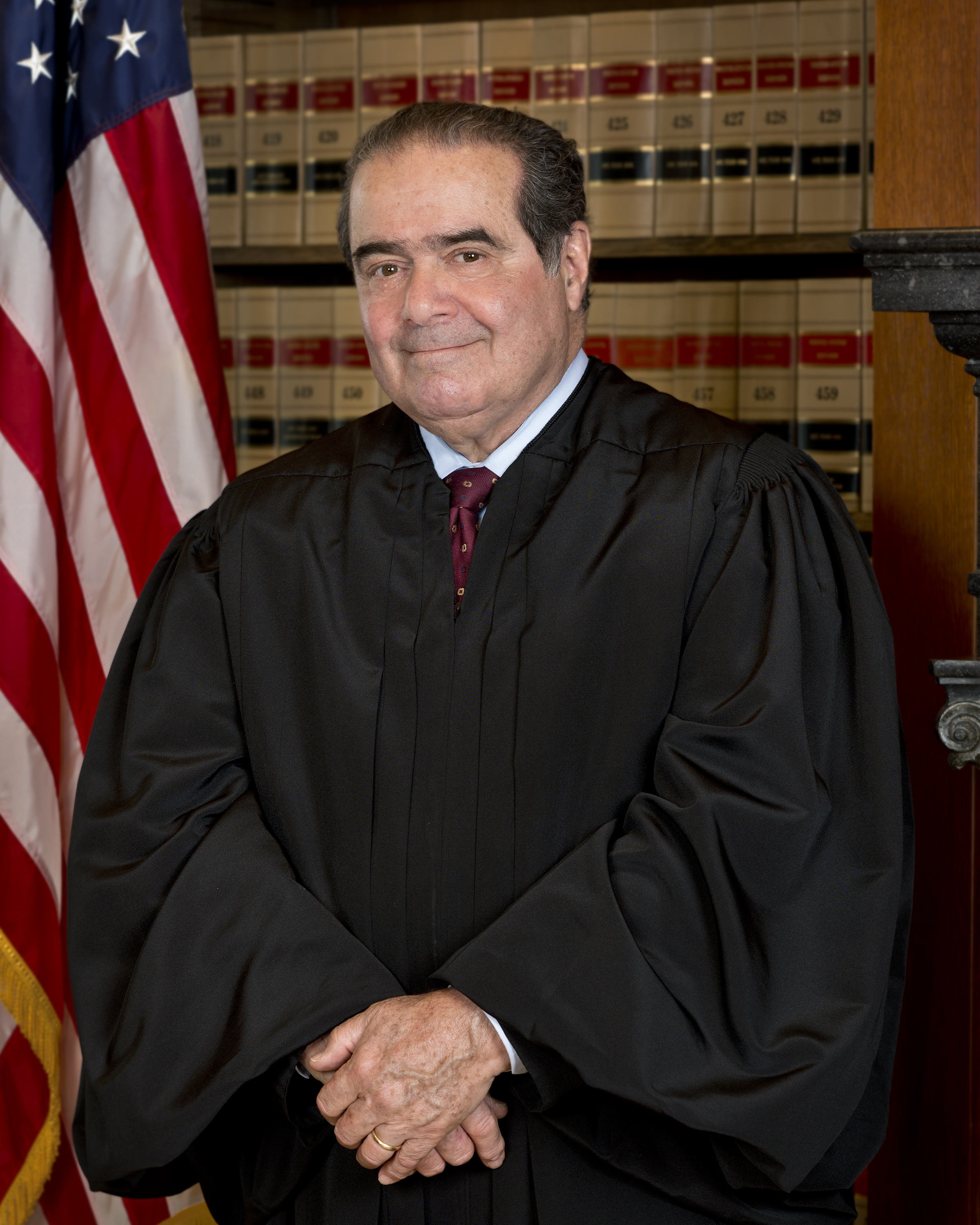Antonin Scalia
 Antonin Gregory Scalia , .|group=n}} (March 11, 1936 – February 13, 2016)|group=n}} was an American jurist who served as an associate justice of the Supreme Court of the United States from 1986 until his death in 2016. He was described as the intellectual anchor for the originalist and textualist position in the U.S. Supreme Court's conservative wing. For catalyzing an originalist and textualist movement in American law, he has been described as one of the most influential jurists of the twentieth century, and one of the most important justices in the history of the Supreme Court. Scalia was posthumously awarded the Presidential Medal of Freedom in 2018, and the Antonin Scalia Law School at George Mason University was named in his honor.
Antonin Gregory Scalia , .|group=n}} (March 11, 1936 – February 13, 2016)|group=n}} was an American jurist who served as an associate justice of the Supreme Court of the United States from 1986 until his death in 2016. He was described as the intellectual anchor for the originalist and textualist position in the U.S. Supreme Court's conservative wing. For catalyzing an originalist and textualist movement in American law, he has been described as one of the most influential jurists of the twentieth century, and one of the most important justices in the history of the Supreme Court. Scalia was posthumously awarded the Presidential Medal of Freedom in 2018, and the Antonin Scalia Law School at George Mason University was named in his honor.Scalia was born in Trenton, New Jersey. A devout Catholic, he attended the Jesuit Xavier High School before receiving his undergraduate degree from Georgetown University. Scalia went on to graduate from Harvard Law School and spent six years at Jones Day before becoming a law professor at the University of Virginia. In the early 1970s, he served in the Nixon and Ford administrations, eventually becoming an assistant attorney general under President Gerald Ford. He spent most of the Carter years teaching at the University of Chicago, where he became one of the first faculty advisers of the fledgling Federalist Society. In 1982, President Ronald Reagan appointed Scalia as a judge of the U.S. Court of Appeals for the District of Columbia Circuit. Four years later, Reagan appointed him to the Supreme Court, where Scalia became its first Italian-American justice following a unanimous confirmation by the U.S. Senate 98–0.
Scalia espoused a conservative jurisprudence and ideology, advocating textualism in statutory interpretation and originalism in constitutional interpretation. He peppered his colleagues with "Ninograms" (memos named for his nickname, "Nino") intending to persuade them to his point of view. He was a strong defender of the powers of the executive branch and believed that the U.S. Constitution permitted the death penalty and did not guarantee the right to either abortion or same-sex marriage. Furthermore, Scalia viewed affirmative action and other policies that afforded special protected status to minority groups as unconstitutional. Such positions would earn him a reputation as one of the most conservative justices on the Court. He filed separate opinions in many cases, often castigating the Court's majority—sometimes scathingly so.
Scalia's most significant opinions include his lone dissent in ''Morrison v. Olson'' (arguing against the constitutionality of an Independent-Counsel law), and his majority opinions in ''Crawford v. Washington'' (defining a criminal defendant's confrontation right under the Sixth Amendment) and ''District of Columbia v. Heller'' (holding that the Second Amendment to the U.S. Constitution guarantees an individual right to handgun ownership). Provided by Wikipedia
